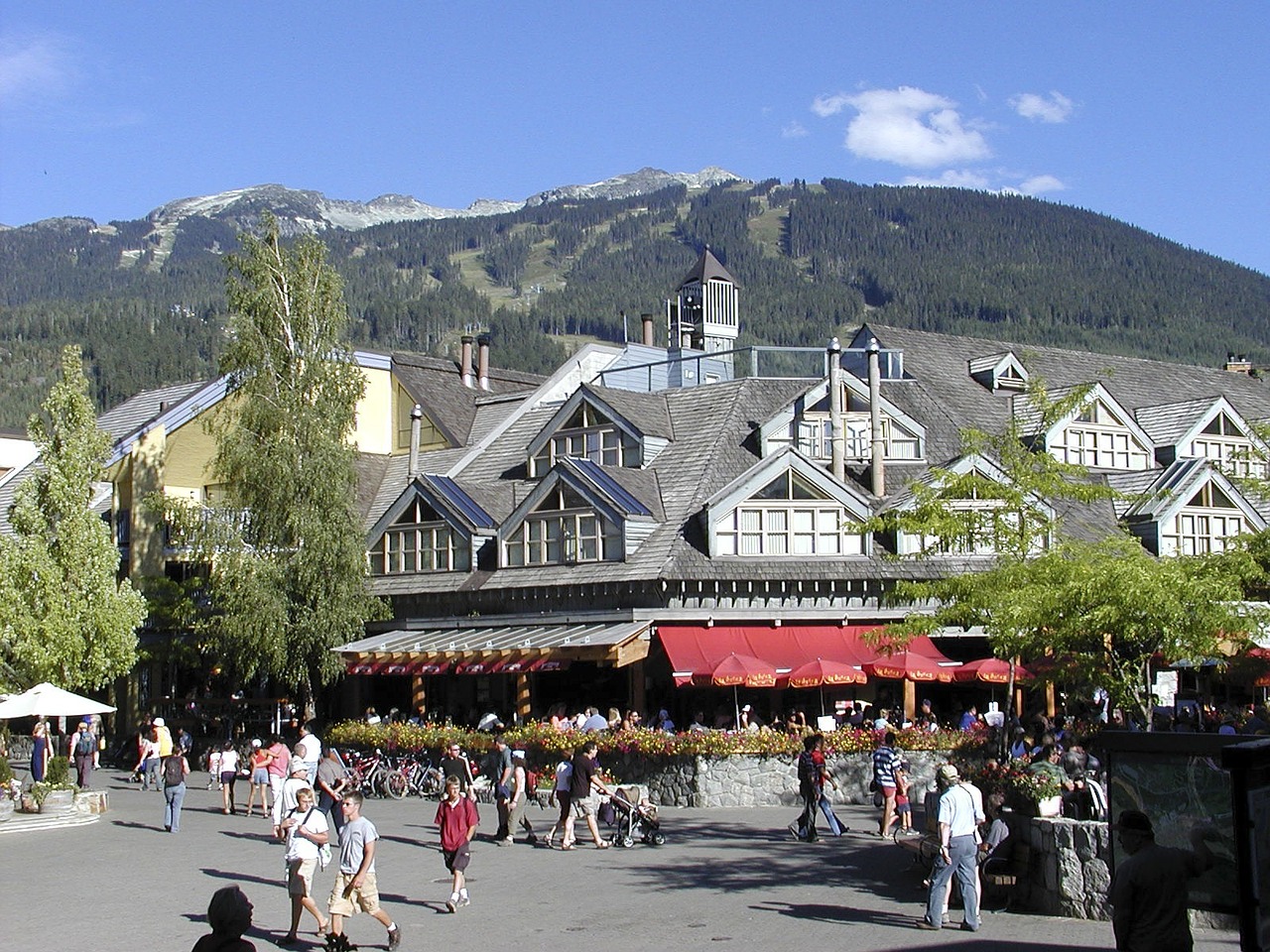Whistler ski resort tops 41 degrees as heatwave bakes western Canada
The often call the Canadian ski town of Whistler "Little Australia" because of the swarms of Aussies who have lived, skied and worked there over the years, but right now, it must feel more Aussie than ever.
As Western Canada's major heatwave continues, Whistler, home to the 2010 Winter Olympics, has just sizzled through an intense Monday, with a top temperature of 41.1°C (it's Monday evening there now).

Image: Whistler village on a summer day significantly less hot than the one they just had. Source: @ArtTower on Pixabay.
And readings like this just keep rolling in from all over western Canada, especially the province of British Columbia.
- Yesterday we told you about the town of Lytton, about three hours northeast of Vancouver (Whistler is about 90 mins NE), which set Canada's all-time record of 46.6°C.
- Well, it looks like that record's gone again with a preliminary new record of 47.9°C at Lytton.
- To put that in perspective, that's hotter than the highest maximum temperature ever recorded at the main weather station in any Australian capital city (though not the outer suburbs, as Penrith in Sydney's west had a day of 48.9°C in 2020).
Meanwhile Whistler wasn't the only Canadian hotspot usually associated with skiing that experienced extreme heat on Monday.
- Kamloops, the gateway to Sun Peaks ski resort - another hill very popular with Aussies - also recorded an absolute scorcher. The city of 100,000 recorded a sweltering 45.8°C.
Meanwhile the heat is so intense in British Columbia's mountain regions that what's left of the winter snowpack is melting at an incredibly rapid rate, flooding local rivers.
Evacuation Alert issued by the Squamish-Lillooet Regional District for Area C – Pemberton. More information available here: https://t.co/8EZVw10p5q@slrd_bc #BCFLOOD
— Emergency Info BC (@EmergencyInfoBC) June 26, 2021
In Australia, we usually get heatwaves and floods months or even years apart. In Canada, one causes the other. It really is an unpredented situation they're having over there right now.
So what's causing this extreme heat?
"High pressure is trapped under a 'heat dome', unable to be pushed through the country by wind, creating long-lasting high temperatures wherever the pressure sits," Environment Canada meteorologist Armel Castellan explained.
In simple terms an Aussie can understand, western Canada is under the influence of a large, near-stationary, blocking high pressure system, of the type we saw in the Black Summer of 2019/20.
As for the deeper underlying cause...
"We have been juicing the climate system with steroids and just like a baseball player on steroids is more likely to hit a home run, the climate on greenhouse gases is more likely to have heat waves," Simon Donner, a climate scientist at the University of British Columbia's Department of Geography, colourfully told the Vancouver Sun.
"This heat wave is exactly the type of event that scientists for years have been saying are going to become more common because of putting greenhouse gases in the atmosphere," Donner added.